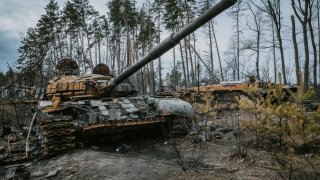Vladimir Putin Will Take Advantage of the Presidential Transition
The next few weeks of fighting will be crucial in determining the geographical settlement between Russia and Ukraine.
Russians are betting that the new Trump presidency will conclude the war in a manner that is as satisfactory to their interests as possible. To this end, we need to interpret Moscow’s reinforced effort to conquer new territory in Ukraine and regain full control of the Kursk region in the Russian Federation. The involvement of the North Korean (DPRK) troops needs to be seen within this context as well.
The strategic partnership between the Russian Federation and the Democratic People's Republic of Korea has been strengthening over time. North Korea already provided Russia with a significant amount of ammunition, missiles, and other military equipment over the last few months of the war. Now, it has sent roughly 10,000 troops, according to Western sources.
Russia is expected to reciprocate now and in the future with upgraded military technology for both conventional and nuclear capabilities that North Korea strives for. Beyond military cooperation, the Russia-North Korea relationship entails a more comprehensive political alliance centered on the opposition to the American global agenda, which is again very important to DPRK given its international isolation.
A relatively small number of Western fighters have been repeatedly reported to be in action in Ukraine. Not only individually as international volunteers recruited by the Ukrainian army but also as military aid provided by Western governments to Ukraine to train the national army, provide intelligence, and operate some sophisticated equipment.
Why have Russia and North Korea Agreed?
Several reasons can be deduced on both sides. From the Russian side, having an additional source of military personnel is decisive not only to increase the impact on the ground but also to reduce the pressure on national conscription, which has been painful since the beginning of the war. Moreover, in case of casualties, of course, the loss of a foreign Korean soldier is less politically costly for the Kremlin.
From the DPRK side, sending troops is a relatively small cost compared with the significant benefits that the country can accrue in terms of enhanced military capabilities and political alliance with Russia. In case of casualties, the political cost will be minor, given the tight media censorship and social control in the country. The troops are expected to fight on Russian territory only, specifically in the reconquer of the Kursk region, which does not raise legal issues.
The operation is, however, not without risks. The chance of a wider escalation is, for the time being, considerable. The Republic of Korea (RoK) announced its intention to strengthen its support for Ukraine in response to the involvement of the DPRK troops. Though probably under U.S. pressure, the move signals a notable opening toward a multinational conflict.
Jake Sullivan, U.S. National Security Advisor, said on CBS’ Face the Nation that President Biden intends to deliver the final $6 billion in military support for Ukraine before his mandate ends. This is in line with the U.S. administration’s goal “to put Ukraine in the strongest possible position on the battlefield so that it is ultimately in the strongest possible position at the negotiating table.”
In the long term, however, the situation can change. Donald Trump declared his intention to put an end to the war. As a consequence, a significant effort to gain additional last-minute miles on the ground can be expected in the next few weeks from Russia, with the help of North Korea, to sit at the negotiation table in a strong position with a de facto control over a larger portion of the territory.
These next few weeks of transition, while Trump awaits his seat in the White House, will be crucial in determining the exact delineation of the future Ukrainian-Russian border.
Raffaele Marchetti (Laurea, Rome-La Sapienza; PhD, London-LSE) is a Professor in International Relations at the Department of Political Science and the School of Government of LUISS, where he is also the Director of the Center for International and Strategic Studies-CISS. His research interests concern global politics and governance, hybrid and city diplomacy, transnational civil society, (cyber-)security and political risk, and democracy. He acts as an external expert for public/private institutions on issues of global governance, public policies, civil society, and security. He is the editor of the Routledge series Innovations in International Affairs.
Image: kibri_ho / Shutterstock.com.

